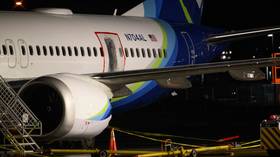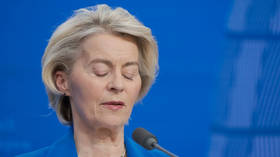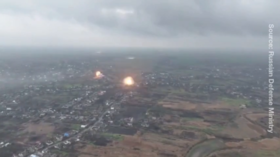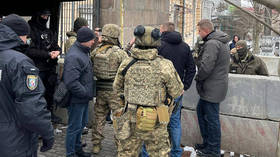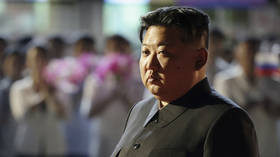Multiple ‘non-compliance issues’ exposed in Boeing safety audit – NYT
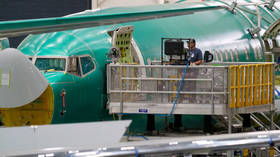
A US safety audit of Boeing’s 737 MAX 9 manufacturing process – ordered in the wake of an airline’s midair door blowout earlier this year – has found dozens of quality-control shortcomings, including the use of dish soap and a hotel key card as makeshift tools.
The New York Times reported on Tuesday that the US Federal Aviation Administration (FAA) identified 97 “non-compliance” issues at Boeing and failed the aircraft maker on 33 out of 89 product audits. Although the agency did not release a copy of its report to the public, FAA administrator Michael Whitaker said in a statement that Boeing must make reforms to ensure that its jets are safe.
“This won’t be back to business as usual for Boeing,” Whitaker said. “They must commit to real and profound improvements.”
The FAA also conducted audits of fuselages produced by Boeing supplier Spirit Aerosystems, reportedly finding safety shortcomings in seven out of 13 cases. Investigators saw Spirit mechanics putting dish soap on a door seal “as a lubricant in the fit-up process,” the NYT reported . The workers also used a key card to check the seal on a door and wiped away the dish soap with a wet cheesecloth.
The safety review was ordered after a January 5 Alaska Airlines flight bound for California from Portland, Oregon, had to turn back after a door panel blew off at 16,000 feet, injuring several of the 171 passengers aboard. The FAA temporarily grounded all 737 MAX 9 jets in the US for safety inspections. Alaska Airlines said it found loose bolts on many of the Boeing planes in its fleet.
Boeing airliners have been involved in multiple safety incidents in recent days. A 737 MAX 8 operated by United Airlines rolled off a runway and tilted onto its side after landing in Houston on Friday. A day earlier, an Osaka-bound Boeing 777 operated by United was diverted after a tire fell off its landing gear upon takeoff in San Francisco. At least 50 people on a Boeing 787 operated by Latam Airlines were injured on Monday when the jet – heading to New Zealand from Australia – went into a sudden nosedive, slamming passengers into the ceiling, because of what the air carrier described as a “technical event.”
The 737 MAX, Boeing’s top-selling airliner, was grounded by aviation regulators around the world in March 2019, after crashes in Ethiopia and Indonesia killed a combined 346 people. The planes were cleared to go back into service around two years later, following repairs to their flight control systems.
Boeing, which also ranks as one of the largest US defense contractors, did not immediately comment on the FAA’s audit, the NYT said.
